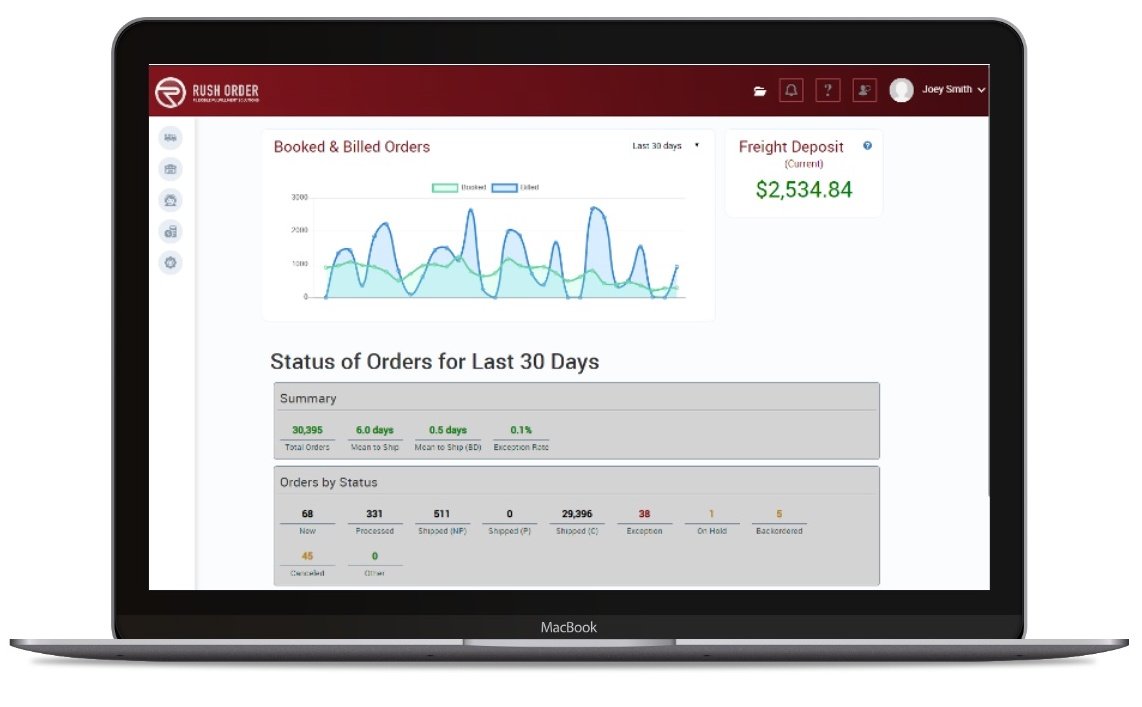
Reliable 3PL Fulfillment for Fast, On-Time Deliveries
We handle from storage to global shipping. Our warehouse management system ensures inventory control. We provide support team for your store’s customer needs.
30+
Years of Experience
99.99%
Shipment Accuracy
150+
Happy Clients
99.9%
On Time Fulfillment
Real-Time Dashboard. Total Visibility
Stay in control with a powerful dashboard that gives you full visibility into your fulfillment operations. Track inventory, monitor orders, and view performance metrics — all in one place. Whether you're managing one channel or many, our intuitive dashboard keeps you informed and in command.
How Our 3PL Fulfillment Simplifies Your Logistics
We receive your order
Integrate your store, send your orders to our warehouses, while ensuring real-time inventory management.
We store your order
We carefully store inventory in our warehouses, ensuring perfect conditions for your products.
We ship your order
We pick pack items securely and ship with trusted carriers, ensuring timely delivery to customers' door.
We optimize your returns
We manage smooth returns and product exchanges and automate refunds upon customer return.
Built for the World’s Fastest Growing Brands
Our Full Suite of 3PL Fulfillment Services
What Rush Order Clients Are Saying
The Benefits of Our 3PL Fulfillment Services
-
Rush Order hits the mark with 99.99% order accuracy. That's not just a number—it means virtually zero customer complaints about wrong items. When your customers get exactly what they ordered, they come back for more. Fewer mistakes mean fewer returns and happier shoppers who trust your brand.
-
Our network spans North America, Europe, Asia, and Australia. This means your products can reach customers faster, no matter where they live. Shorter shipping times equal happier customers and fewer "where's my order?" emails flooding your inbox. Strategic warehouse locations cut delivery times and shipping costs simultaneously.
-
Integration is easy with platforms like Shopify, WooCommerce, and Amazon. No technical headaches or complicated setups—just connect your store and watch orders flow smoothly from click to delivery without lifting a finger. Your existing systems keep working while Rush Order handles the physical logistics behind the scenes.
-
Customer support goes beyond the basics with live agents ready to help across email, phone, chat, and social media. This means your customers get real help from real people when questions arise about their orders. No frustrating chatbots or endless hold times—just quick, helpful responses that reflect well on your brand.
-
Scaling up is painless. Whether you're shipping 10 orders a day or 10,000, Rush Order grows with you without service hiccups. No need to switch providers as your business expands—they've got you covered from startup to success story. Their infrastructure handles seasonal spikes and viral product launches with equal ease.
See 3PL Fulfillment in Action
Watch our video to understand how our 3PL services makes your operations easier, cut costs, and scale with your business.
3PL Services That Set Us Apart from the Rest
Order Fulfillment
When a customer clicks "buy," Rush Order springs into action. They pick the right items from warehouse shelves, pack them carefully to prevent damage, and ship them out the same day for most orders. Their warehouse team follows strict quality checks to ensure the right products go to the right people every time.
Inventory Management
"Out of stock" messages kill sales. Rush Order tracks your inventory in real-time, showing exactly what's available across all sales channels. They'll alert you when stock runs low and store your products efficiently, maximizing warehouse space while keeping everything organized and accessible.
Returns Processing
Returns happen, but they don't have to be painful. Rush Order handles the entire process—receiving returned items, inspecting them, restocking when appropriate, and processing refunds or exchanges. They even provide data on why items come back, helping you spot and fix product issues.
Kitting and Assembly
Some products need special handling. Rush Order builds gift boxes, bundles related items, and assembles multi-part products before shipping. This custom service saves you time and ensures presentation quality, whether you're creating subscription boxes or special promotional packages.
We Have Integrations with The Most Popular Platforms
Rush Order 3PL Fulfillment Centers
Industries We Serve For 3PL Fulfillment
Practical 3PL Reporting with the Rush Order Warehouse Management System
Track orders, shipments, and exceptions in real-time with smart reporting that gives you full visibility and faster decision-making
Case Study: Scaling CX & Fulfillment Instantly
From one agent to a team of several hundred agents, Rush Order can build a scalable and affordable CX solution for your brand.
900% growth in a pandemic? We got this.
Learn how Vogmask leveraged Rush Order for Customer Support and Order
Fulfillment to massively scale its business.
900% Growth in Daily Orders
1000s of Emails & Chat Sessions Weekly
92% Customer Satisfaction
Blogs






















































